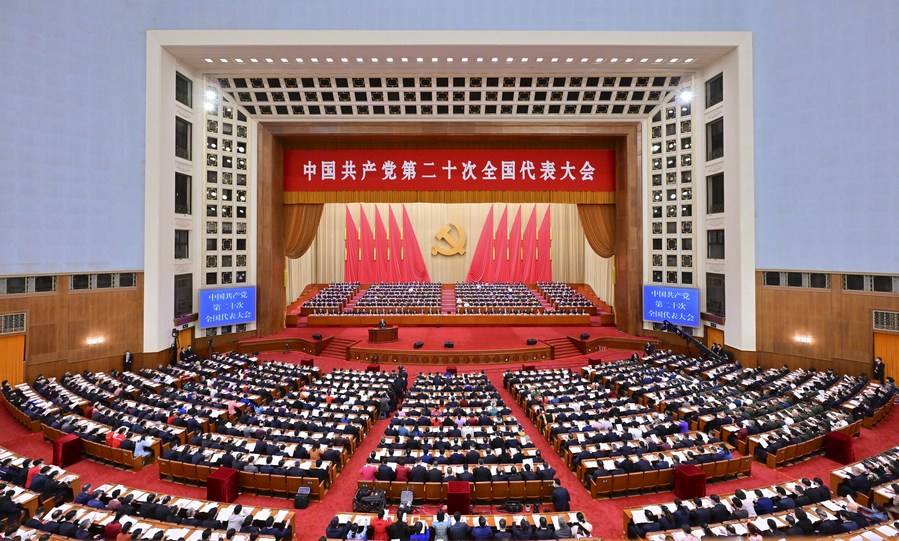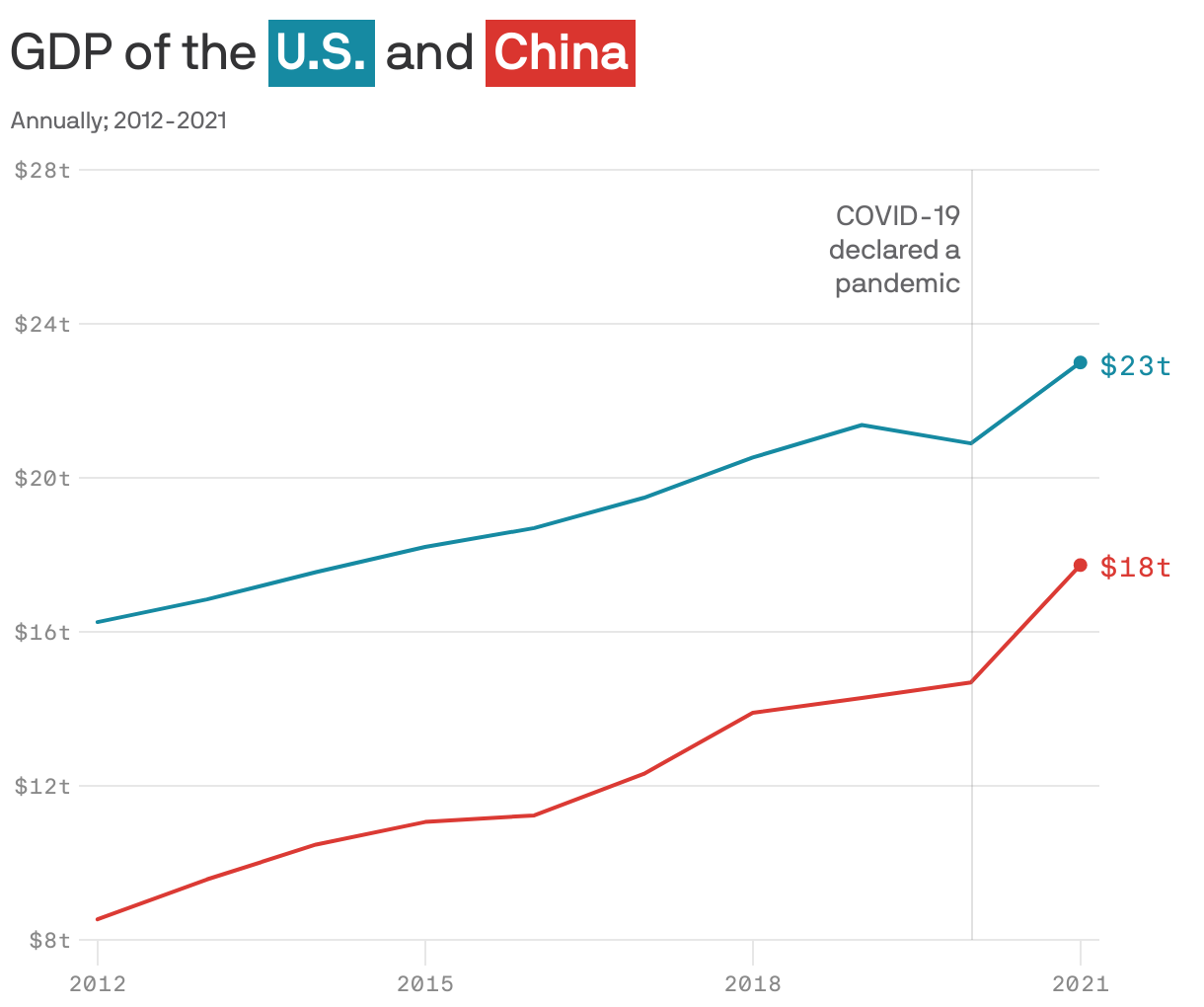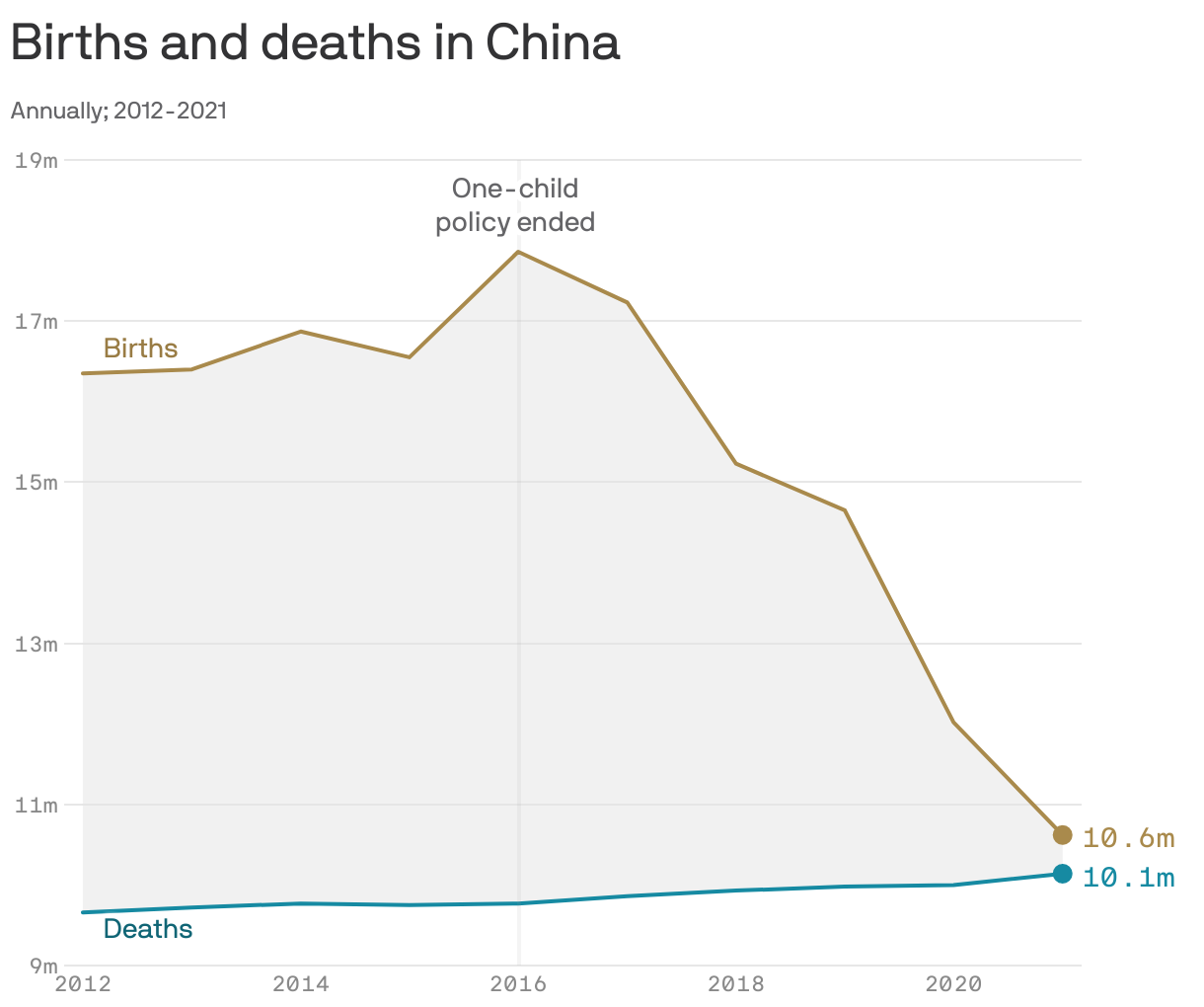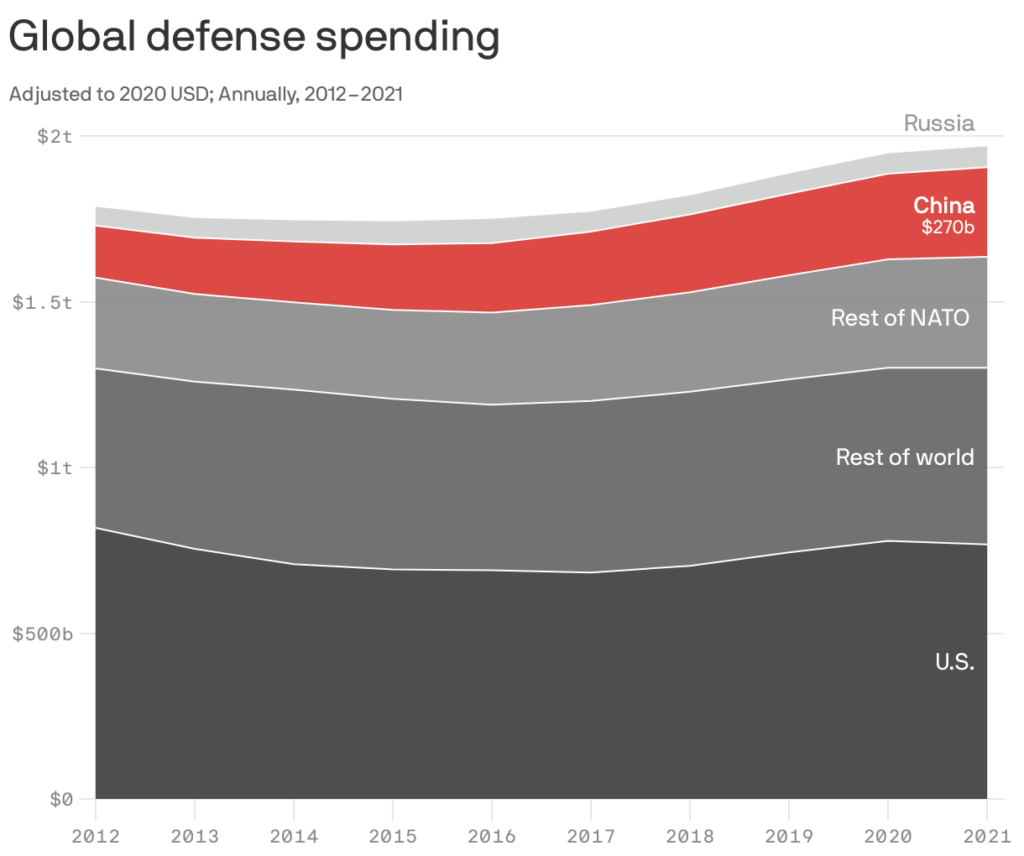How China’s economy has changed with Xi

In the ten years or so of Xi's presidency, China's GDP has more than doubled. But the zero-Covid policy and the crisis in the real estate sector may have held back the overtaking of the United States. Here are numbers and details
The 20th National Congress of the Communist Party of China, which began on Sunday 16 October, is expected to confirm Xi Jinping as president of China and general secretary of the party for at least another five years: the third term – the limit of two was canceled in 2018 – will make him the longest-serving leader since Mao Zedong.
ZERO-COVID AND IMPACT ON GDP
As Bethany Allen-Ebrahimian, a journalist expert on China, summed up inAxios , "authoritarianism and assertive foreign policies [by Xi, ed ] will probably continue for at least another five years". As it seems, the so-called " zero-COVID " policy will continue, or that set of highly restrictive practices for the containment of coronavirus infections.
In fact, Xi himself declared that "we have adhered to the supremacy of the people and the supremacy of life, we have adhered to the zero-COVID dynamic […] and we have achieved important positive results". But its anti-contagion strategy, in addition to fueling a certain social discontent , had a strong negative impact on the economy, to the point that – for the first time since 1990 – this year China's GDP could grow at a rate lower than the rest of Asia .
According to the latest estimates by the World Bank, in 2022 China's gross domestic product – the second largest economy on the planet, after the US – will grow by 2.8 percent, much less than +8.1 percent in 2021 and much less. even the 4-5 per cent expected by the institution last April. For this year, Beijing had set a growth target of 5.5 percent, the lowest in thirty years.
THE XI PRESIDENCY AND THE ECONOMIC GROWTH OF CHINA
In his ten years of presidency – he became secretary of the Communist Party at the end of 2012 – Xi Jinping has made the Chinese economy a tool for the projection of geopolitical power, writes Allen-Ebrahimian. In 2012, China's GDP was 8.5 trillion dollars; in 2021 it had more than doubled, to 17.7 trillion billion.
The GDP of the United States, which China aims to surpass both in economic size and political influence, is about 23 trillion dollars.

WILL CHINA BE ABLE TO OVERCOME THE UNITED STATES?
The idea that the Chinese economy is destined to overtake the US within a few decades, however, has recently lost some strength. Beyond the damage caused by the zero-COVID policy, the real estate industry is in fact in a debt crisis which, given the importance of the sector (about 30 per cent of national economic activity), could end up infecting the whole economy. The World Bank, for example, thinks that the construction sector is not a temporary crisis, but rather that it represents a "structural" problem.
THE JCER STUDIO
According to a study carried out by the Japan Center for Economic Research (JCER), in nominal terms the Chinese economy will surpass that of the US in 2033. But the record will not last long because, after "seventeen years of supremacy", in 2050 it will return to the second place.
The reasons – explains the institute – are different: the Chinese economy currently depends on investments in infrastructure and real estate for its growth, but the sector is close to its limit; restrictions on tech companies, in particular, could lead to a slowdown in productivity; finally, the shrinking and aging of the population will be a burden for the state coffers.
In the main scenario elaborated by the JCER, after passing it, in 2038 China's GDP will be almost 5 percent greater than that of the United States. However, the gap will narrow over the course of the 2040s; the reversal will occur in 2050 and by 2060 America will have an economy 10 percent larger than China's.
The study center forecast is based on three factors: company structures and the availability of capital; the size of the workforce; productivity, a reflection of technological development and efficiency. According to the JCER, economic growth has so far allowed Beijing to accumulate capital, but it is likely that investments will slow down, also due to constraints on the real estate sector; the number of workers will decrease, and so will the market participation rate; productivity growth will be hindered by the regulation of the technology industry.
THE TREND OF THE POPULATION
In 2021, Chinese population growth reached its lowest level since 1960, and the number of births only slightly exceeds that of deaths: in 2021 there were 10.6 million births, compared to 16 million in 2012.
A low birth rate can lead to a reduction in the working-age population, which is crucial for economic growth and support for the elderly.

THE EXPENDITURE FOR DEFENSE
In Xi's plans there is not only the economic overtaking of the United States, but also the military one. Beijing's intention is to strengthen its armed forces (known as the People's Liberation Army), to modernize them and to increase their readiness for combat, so as to adapt its military strength to the ambitions of global influence.
The roadmap foresees the modernization of the army by 2035 and the ability, by 2050, to deploy a first-tier army.

According to a report from the United States Department of Defense at the end of 2021, by 2027 China will have seven hundred nuclear warheads at its disposal, reaching one thousand three years later: today it has about 350.
US general Mark Milley, chief of the joint staff, said he considers China as the "number one" military challenger of the United States, specifying that the country "is clearly challenging us at the regional level" in Asia-Pacific. “And their aspiration is to challenge us globally”. "They have a Chinese dream," he continued, "and they want to challenge the so-called rules-based liberal order" with their own alternative system.
Read also: All of China's nuclear targets on aircraft carriers
This is a machine translation from Italian language of a post published on Start Magazine at the URL https://www.startmag.it/mondo/economia-cina-xi-jinping/ on Mon, 17 Oct 2022 10:02:01 +0000.
